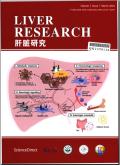Prognostic comparison between pulmonary metastasectomy and combination immunotherapy with targeted molecular therapies for advanced hepatocellular carcinoma with pulmonary metastasis: A propensity score matching analysis
IF 2.1
Q2 Medicine
引用次数: 0
Abstract
Background and aims
Advanced hepatocellular carcinoma (HCC) with pulmonary metastasis (PM) has a poor prognosis, and optimal treatment strategies remain controversial. This study aimed to compare the long-term outcomes of patients with advanced HCC with PM who were treated with resection of pulmonary metastases versus those treated with targeted therapies combined with immunotherapy.
Methods
A retrospective analysis was conducted on the medical records of HCC patients with PM who underwent either pulmonary metastasectomy or immunotherapy combined with targeted therapies at the Eastern Hepatobiliary Surgery Hospital, Changhai Hospital of Shanghai, Fujian Provincial Hospital, and West China Hospital of Sichuan University from September 2013 to October 2022. One-to-one propensity score matching (PSM) was employed to control the influence of potential confounders, and the survival outcomes were compared.
Results
A total of 119 HCC patients with PM were included in this study. The overall survival (OS) of patients who underwent pulmonary metastasectomy was significantly longer than that of patients who received immunotherapy targeted combinations (OS: 1-year, 80.0% vs. 59.3%; 2-year, 31.7% vs. 20.3%; 3-year, 20.0% vs. 0; P < 0.001). After PSM, the long-term prognosis of the pulmonary metastasectomy group remained significantly better than that of the immunotherapy combination group (OS: 1-year, 87.0% vs. 69.6%; 2-year, 34.8% vs. 30.4%; 3-year, 21.7% vs. 0; P = 0.005). Multivariate analysis revealed that treatment allocation (hazard ratio (HR) = 2.177, 95% confidence interval (CI) = 1.068–4.439) and hepatic tumor T stage (HR = 2.342, 95% CI = 1.209–4.538) were independent risk factors for OS.
Conclusions
Pulmonary metastasectomy was associated with improved survival compared to immunotherapy combined with targeted therapies and may represent an optimal treatment option for highly selected HCC patients with resectable PM.
肺转移切除术与免疫治疗联合靶向分子治疗晚期肝细胞癌伴肺转移的预后比较:倾向评分匹配分析
背景与目的晚期肝细胞癌(HCC)合并肺转移(PM)预后较差,其最佳治疗策略仍存在争议。本研究旨在比较晚期HCC合并PM患者接受肺转移切除治疗与靶向治疗联合免疫治疗的长期预后。方法回顾性分析2013年9月至2022年10月在上海东部肝胆外科医院、上海长海医院、福建省立医院和四川大学华西医院接受肺转移切除术或免疫联合靶向治疗的肝癌合并PM患者的病历。采用一对一倾向评分匹配(PSM)来控制潜在混杂因素的影响,并比较生存结果。结果本研究共纳入119例HCC合并PM患者。接受肺转移瘤切除术的患者的总生存期(OS)明显长于接受靶向免疫治疗联合治疗的患者(OS: 1年,80.0% vs. 59.3%;2年,31.7% vs. 20.3%;3年,20.0% vs. 0;P & lt;0.001)。PSM后,肺转移瘤切除术组的长期预后仍显著优于免疫治疗联合组(OS: 1年,87.0% vs 69.6%;2年,34.8% vs. 30.4%;3年,21.7% vs. 0;p = 0.005)。多因素分析显示,治疗分配(风险比(HR) = 2.177, 95%可信区间(CI) = 1.068 ~ 4.439)和肝肿瘤T分期(HR = 2.342, 95% CI = 1.209 ~ 4.538)是发生OS的独立危险因素。结论与免疫治疗联合靶向治疗相比,肺转移切除术可提高生存率,可能是高选择性肝癌患者可切除PM的最佳治疗选择。
本文章由计算机程序翻译,如有差异,请以英文原文为准。
求助全文
约1分钟内获得全文
求助全文

 求助内容:
求助内容: 应助结果提醒方式:
应助结果提醒方式:


